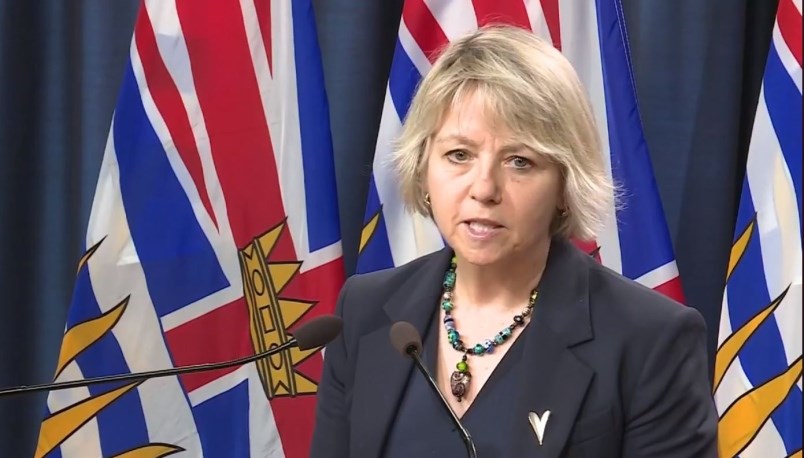There are now 725 cases of the coronavirus (COVID-19) in B.C., after health officials announced 66 new cases Tuesday.
Provincial health officer Dr. Bonnie Henry reports that there are 359 cases in Vancouver Coastal Health (VCH), 241 in Fraser Health, 52 on Vancouver Island, 62 in Interior Health and 11 in Northern Health.
There are currently 66 people in hospital and 26 are in intensive care. There have been no new deaths in the province.
There have been four more residents at the Lynn Valley Care Centre who have tested postive, as well as three staff at the facility. At Haro Park, two residents and one additional staff member have tested positive.
186 people have fully recovered from COVID-19 in B.C. Henry notes that this means that most people, particularly who are young and have mild illness, are recovering from this virus at home.
Henry states that the province will align its enforcement with the federal government on the Quarantine Act, which orders that travellers returning to Canada remain in self-quarantine for 14 days.
"We can all make a difference, but we need everyone to be 100 per cent committed," she notes. "Each and everyone of us needs to make that commitment to stay away from people who are vulnerable."
"That means maintaining that physical distance away from people."
Health Minister Adrian Dix reports that 5,070 8-1-1 calls were answered on Tuesday, March 25 and that the average wait time was 5.3 minutes.
As of March 26, Dix says that the province has 3,903 total beds vacant in the acute care system, with 371 vacant critical care beds. The current occupancy is 63 per cent overall, and the current occupancy of critical care beds is 54.8 per cent.
During Monday's briefing, Henry underscored that the province is moving the focus on testing to identifying cases where the source is unknown, such as in community spread. For anyone who comes into the country and falls ill, Henry recommends that they stay home rather than risk infecting someone else. Of course, if their symptoms are severe they should still seek medical attention.
"We know the source of infection for anyone coming from outside of Canada," notes Henry. "We assume they have the virus and ask them to self-isolate for 14 days."
"We don't need them to come in for testing."
Henry also reinforced the importance of social distancing while still remaining relationships via technology.
Last week, Henry noted that people should consult the new online assesment tool if they aren't sure if they require further testing or assessment for COVID-19. She also underscored the importance of physical distancing, hand washing, covering your mouth if you cough, not touching your face and staying home if you are sick.



